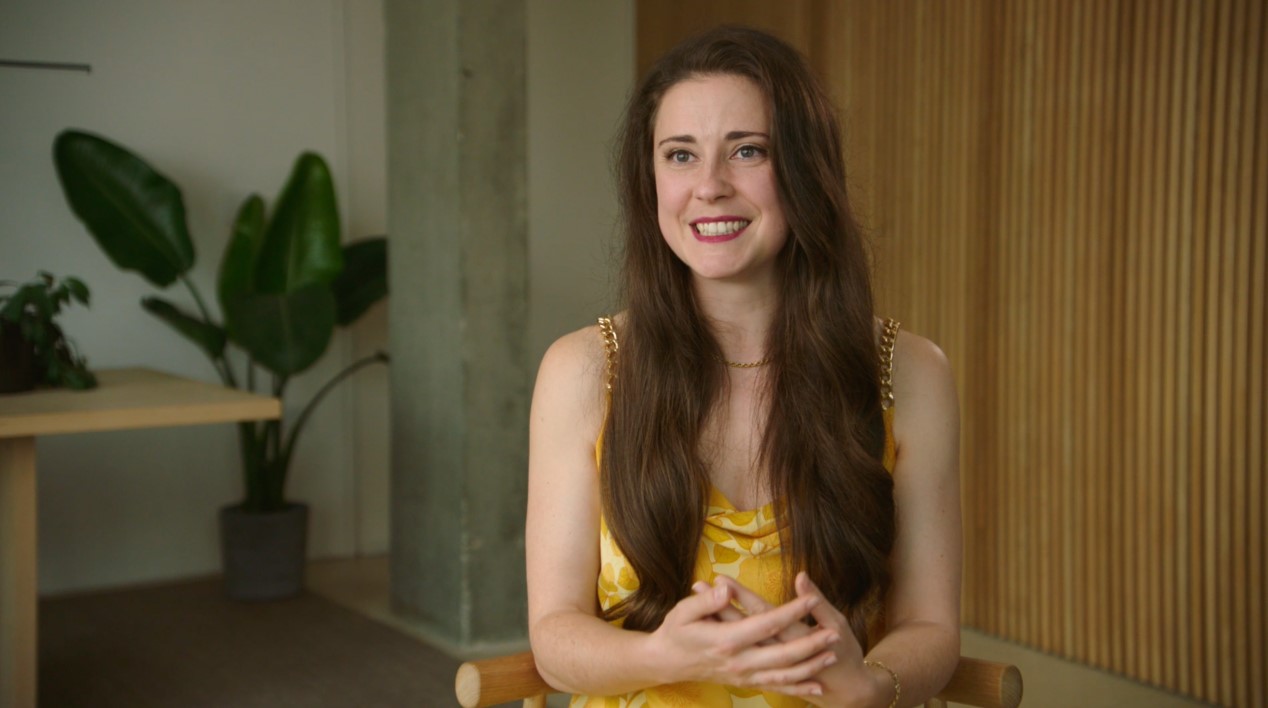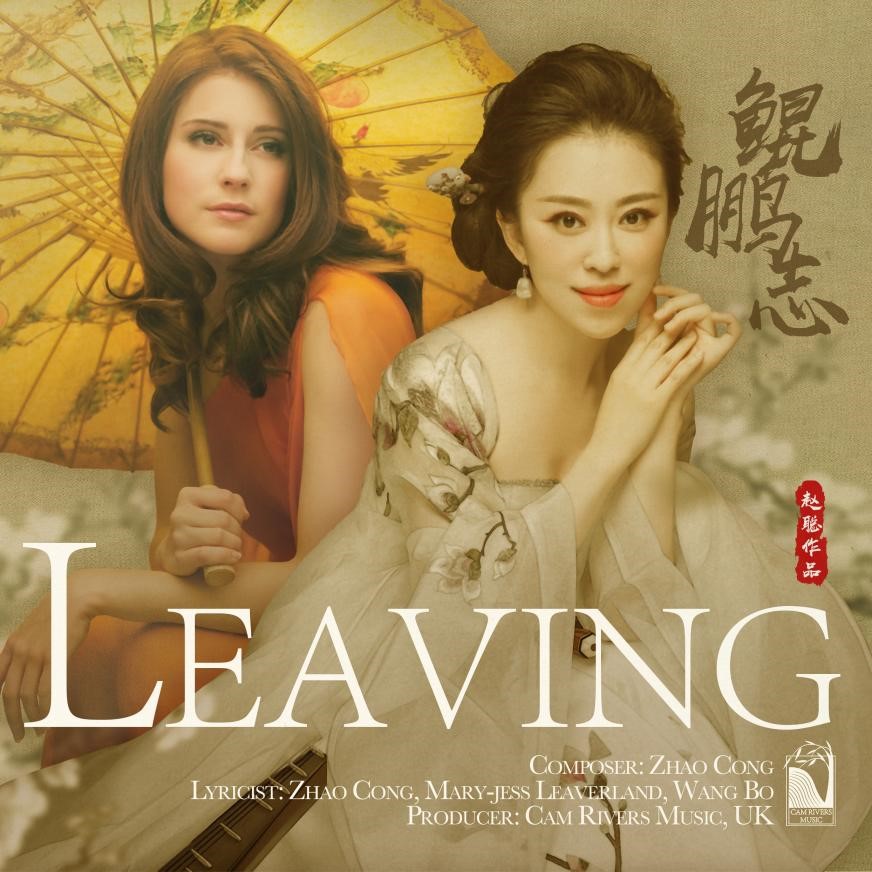Mary-Jess Leaverland: Proving that music knows no borders through Chinese songs
Music transcends borders. Moving melodies and vocals have the power to resonate with people from different cultural backgrounds, creating extraordinary connections. Mary-Jess Leaverland has been an active figure on the stage of UK-China cultural exchange for over a decade, demonstrating that music transcends borders through her performances in both Chinese and English. While studying Mandarin as an exchange student in Nanjing University in China in 2009, Mary-Jess won the Chinese talent TV show "Min Xing Chang Fan Tian." Following her victory, she released her award-winning debut album, "Shine", with Decca Records, a division of Universal Music Group, showcasing a unique blend of Western classical and Eastern elements to an international audience. She also performed the theme song for the popular British drama "Downton Abbey" and performed at the "Creativity is GREAT" festival as a leading figure in promoting UK-China relations. Recognized for her influence in the field of UK-China music, she was appointed as an ambassador for UK music by the GREAT Britain Campaign, representing the UK in 144 countries worldwide.
In this exclusive interview with People's Daily Online, Mary-Jess shares her deep connection with China and highlights the role of music as a universal language that transcends cultural boundaries, allowing her to connect with audiences, whether they understand Mandarin or not.

Mary-Jess Leaverland (Photo/Howard Mills)
Passion for Mandarin and Chinese music
People's Daily Online: You studied a dual degree in Music and Chinese at the University of Sheffield. Why do you love Mandarin Chinese so much?
Mary-Jess: There are so many reasons why I love Mandarin so much. When you speak in Mandarin, it's almost like you're singing a melody of a sentence. It's not only with the tonality of Mandarin, but how creative a language it is. And I think it is not only do you have music within the language, a spoken language, but you have artistry within the characters. You look at the amazing works of art that have such beautiful calligraphy that's dancing on the page. It's such an artistic language.
When the British Council asked me to become a Leading Light to help encourage connections between the UK and China, I just felt so honored that they'd want to have me as a representative because China and learning Chinese and singing in Mandarin has just changed my life completely. If I can share my love and my enthusiasm for China with my peers and with other Westerners, then I love to do that. If I can help share my love of China and the culture and the history and the language with other people so that they can discover something that I am so passionate about, then I love to share my love of China with them so that they can experience those experiences too.
People's Daily Online: Do you think that music has some ability to communicate across borders that other forms of language perhaps lack?
Mary-Jess: We all say that music is a universal language and I really see that. I see it a lot in my concerts actually even when I'm performing to Western audiences and I sing a Chinese song. They can really touch people even if they don't understand the lyrics. When I get to sing in Mandarin, I get to show Westerners how beautiful Mandarin is as a language to sing in. And to get that warm response from a Western audience sharing my love of China is amazing each time.
People's Daily Online: Do you have much experience working with traditional Chinese instruments as part of your music?
Mary-Jess: Yes. I love to include traditional Chinese instruments within my music. And I was very lucky to be able to do that for my debut album "Shine" which was made with Decca Records, part of Universal. We flew out to Beijing to record some traditional Chinese instruments for that album.
We had the guzheng and the erhu. And they bring such beautiful flavor and tones that Western instruments just can't bring. And there were a lot of traditional cultural references within it that we don't have in English. There's always a balance of trying to represent the Chinese culture, but in a way that Western audiences would be able to understand it when it's in their language and not the mother tongue of Chinese.
People's Daily Online: What led you back to China again and again throughout your career?
Mary-Jess: I find China absolutely fascinating, not only because of the long history, but the wonderful and warm culture. And whenever I go over, the Chinese people, they're so warm and welcoming and they're so caring. And they're so patient and understanding with my Chinese as well. Because I really try, but obviously because I haven't learned Mandarin from birth, it's never going to sound as authentic as I'd wish. The patience that the Chinese public have with somebody who's trying to speak their language is great, they understand how difficult it is.
Cross-cultural music collaboration: Balancing Chinese and English
People's Daily Online: In 2021, you were invited to be the lead vocalist and also contribute part of its composition for the song "Leaving" which is originally by Zhao Cong, a well-known pipa player in China, and features both Chinese and English lyrics. What do you think of this kind of cross-border musical collaboration?
Mary-Jess: I'm so grateful that Cam Rivers Publishing was able to bring all of us together for the project of "Leaving". This was my first time working with Zhao Cong, this incredibly influential and incredibly talented pipa player, and I was thrilled that she wanted me to be a part of her creation.
In the song "Leaving", it was so much fun to balance the English with the Chinese. Where do we use the English translation? Where do we use the original Chinese lyrics? And it was a balance because of the amount of cultural references within the Chinese lyrics that Western people wouldn't understand when they were listening to the song and that don't necessarily translate into English. We have the two cultures combined in this song, and also take a lot of inspiration from different genres as well. And it's also another way in which we can really share our cultures and share the appreciation for music within the different cultures as well.

The cover of the Album "Leaving" (Photo/MUYE Studio)
People's Daily Online: When you participated in the English version of "Leaving", you adapted the lyrics and also some melodies. Could you explain your process of how you did this?
Mary-Jess: It was such a beautiful song when I first heard it and then being able to work on the English translation, being able to create the vocalese passage in the middle. I started by doing a literal translation. And then I thought about what the story was trying to portray. What emotions it was trying to portray. And then not only is it a case of trying to make the translation sound more poetic, but then how you make it fit with the melody.
Being able to put my own spin on it as an artist was so much fun. It wasn't just a translation of words. It was then being able to sing it and portray the emotion of those lyrics to tell the story and to work with my friends when I was creating it.
People's Daily Online: Would you like to do more of that in the future? Like a full collaboration between Chinese and English in that sort of way?
Mary-Jess: Yes, that's something I really enjoy and I'm looking forward to doing more of in the future. I plan to have the time to study many more Chinese songs. It's so beautiful to sing in Mandarin.
And I'd love to be able to share more of those songs with the Western audience to change minds in the Western world. So that when they think of beautiful languages to sing in, they can think of the Chinese language.
Photos
Related Stories
- Chinese suona player blows audience away in Paris
- Music brings youths of China, U.S. closer
- Thomas Trotter: The language of music is universal
- Vocal illusions: The magic of ventriloquism
- Traditional musical instrument strikes chords with youths
- Panda rockstar in the making!
- PLA Military Band performs during Military Music Festival in Moscow
- An unexpected choral tune-up
- Chinese orchestra holds concert to celebrate China-Hungary relations
- Trending in China | Dombra: a cultural treasure of the Kazakh people
Copyright © 2024 People's Daily Online. All Rights Reserved.









